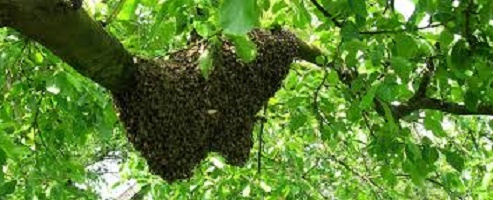Kendrapara, Feb 28: Rampant use of torches during honey collection at Bhitarkanika National Park has led to wildfires 11 times in the last four years, sources said Tuesday. The fires were doused, but not before causing substantial damage to cashew and mangrove forests spread over acres of land.
During investigation regarding the fires, Forest department officials found matchboxes and extinguished torch sticks. The findings have proved beyond doubt that the honey collectors were using lighted torches to drive away the bees. Sources said that approximately 480 quintals of honey are collected annually from the BNP.
The burning of a four-acre of forest cover in Barunei jungle in April, 2018 is a case at this point. When officials reached the spot they found a half-burnt sack and matchboxes.
Similarly, wildfires occurred twice in forests in Mahakalapara block. Some locals managed to apprehend some of honey collectors responsible for the fire. Locals a that the use of torches is not only causing wildfires but also leading to a decrease in honey bee population.
The decline in bee population poses a serious threat to global food security and nutrition, officials said.
Environmentalists Hemant Kumar Rout, Ashok Kumar Swain, Prabhu Prasad Mohapatra and Sheikh Chand said that the BNP is spread over 672 sq km of land. They pointed out that using torches to destroy beehives for honey can cause serious environmental problems.
The Forest department has imposed restrictions on entry of people into this dense jungle is full of valuable flora and fauna. At the same time, it also is the ideal place for bees. The lure of honey prompts people to break rules and enter the core areas of the forest, officials said. The officials said the local residents are entering the jungle to collect honey and in the process harm the environment.
Officials pointed out that in most cases the honey collectors do not extinguish the torches properly once their job is over and that results in forest fires. Usually, honey collectors enter the forests from February to May. With the months falling in the dry season even the minutest of sparks can cause fires, officials opined.
Environmentalists said that the situation can be avoided if the Forest department provides trained people with the proper method to collect honey. They suggested that the honey collectors be brought under the department. If that happens the Forest department can also earn substantial revenue, the environmentalists added. In the process, close to 5,000 families will become self-reliant, they pointed out.
When contacted ranger Manas Kumar Das said that the dense jungle is a prohibited area and nobody has been given permission for honey collection. However, a review will be done on providing necessary training for honey collection.
post news network
